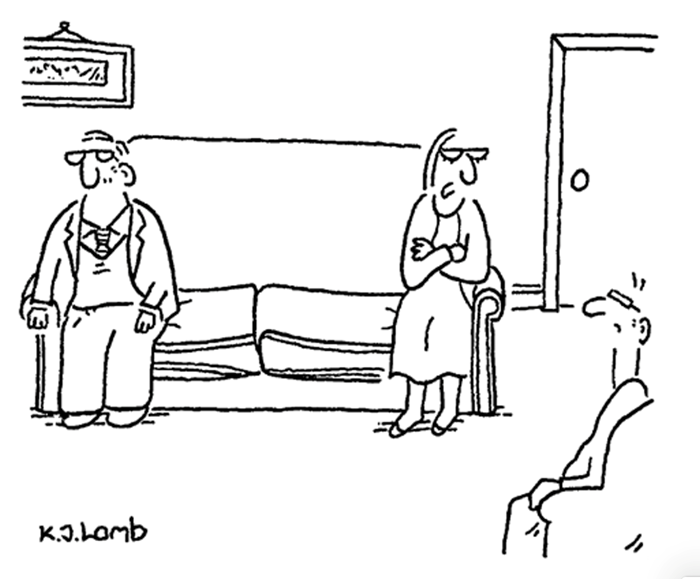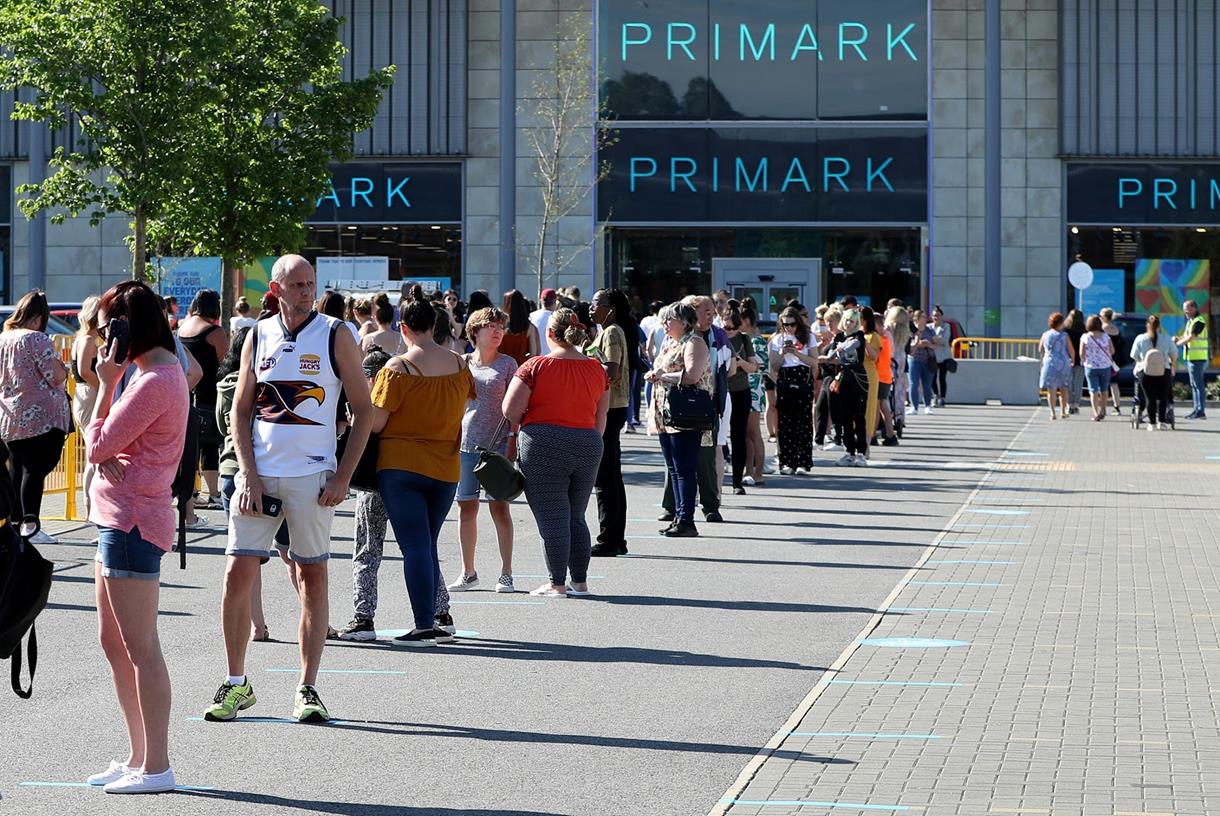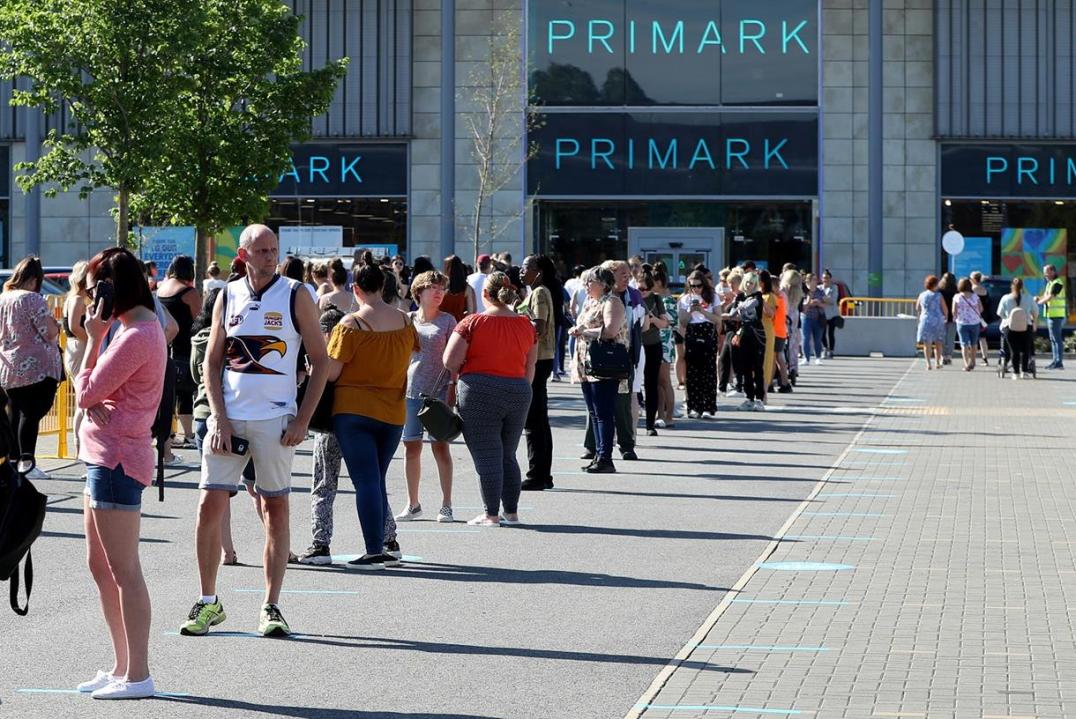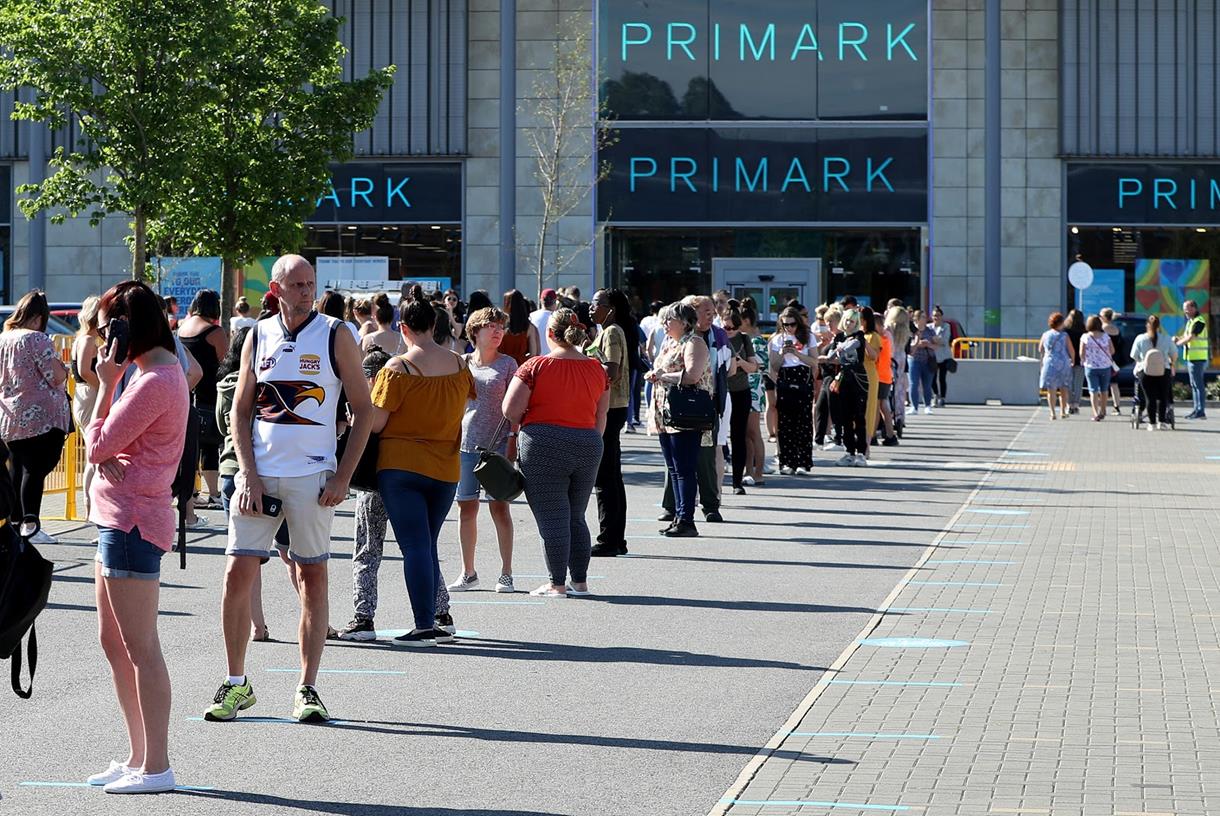The Spectator brings you the latest insight, news and research from the front line. Sign up here to receive this briefing daily by email, and stay abreast of developments both at home and abroad.
News and analysis
- Shops reopen in England today, with long queues outside stores like Primark (see photo below). The government is considering lowering VAT to lure back nervous shoppers, according to the Times.
- More than one million people have not been able to receive any support from government coronavirus schemes, according to the Treasury Select Committee.
- Antibody tests used by the government could miss up to 25 per cent of coronavirus cases.
- Controls to stop the spread of Covid-19 in hospitals were relaxed at the height of the crisis, according to a report in the Telegraph.
- More than 3,000 transport workers and police officers have been deployed at railway stations from today to enforce the wearing of face masks while travelling.
- The chair of the Metropolitan Police Federation has said protests should be banned during the pandemic.
- Imperial College is to start human trials for its coronavirus vaccine this week.
- EasyJet will resume flights today for the first time since 30 March, while this year’s Great North Run has been cancelled.

‘We’re not used to being two metres apart — it’s usually further.’
Is London now virtually Covid-19-free?
For two weeks now, only around 25 new Covid-19 cases have been confirmed each day in London. In a city of nine million, this makes it a manageable risk. The Saturday before last, 6 June, was the first day since the crisis that there were no Covid-19 deaths in the capital’s hospitals. There were fears that recent rallies might lead to a second wave, but the early-warning indicators (i.e. calls to 111) are not twitching. The NHS releases daily data of calls made to the 111 health hotline: when these surged with respiratory problems in March it was a sign of what was to come. The WHO says that symptoms tend to show 5-6 days after infection, yet it is now 12 days since the Hyde Park rally and there is no indication of any uptick.
As with much of Covid-19 data, this might change. Chris von Csefalvay, an Arlington-based epidemiologist, asks whether the protest can be seen as an experiment showing that the risks of Covid-19 are being overstated. By some estimates, one in five Londoners have already had it: Matthew Parris has pointed out that, at such infection levels, the virus seems to die out.
Police were in train stations today insisting that travellers wear face masks after passing the ticket barrier. In our podcast, James Forsyth says this is intended to restore confidence. Fraser Nelson says it risks sending the opposite signal: that the risk is so great that, even at this late stage, face masks are compulsory.
Barely three months ago, face mask adverts were banned by the UK Advertising Standards Agency for ‘misleading’ claims that they help protect against Covid-19. Now, we have police enforcing such masks, and without any debate in parliament about the need for such a measure. Whether this will boost confidence or undermine it remains to be seen.
In pictures

In words
We are therefore going to rediscover the pleasure of being together, of going back to work fully, but also of entertaining ourselves and cultivating ourselves. We are going to rediscover our art de vivre, our taste for freedom. In short, we are going to rediscover France fully.
– Emmanuel Macron hails a first victory against Covid-19, as the French president announces the lifting of a series of lockdown measures.
Mounting school worries
What is the effect of school closures on children’s emotional development? A team from Cambridge University and the Massachusetts Institute of Technology, writing in the Lancet Child and Adolescent Health, warns that deprivation of peer contact among adolescents could have a serious impact on brain development, leading to anxiety, depression and aggression. In young children, they say, parental contact is vital for brain development. But between the ages of ten and 24 people go through a period of heightened sensitivity to social stimuli, and experience an increased need for peer interaction.
Separately, researchers at the Institute of Education at University College London have uncovered a huge gap in the amount of school work that children have been doing at home during lockdown. On average, they discovered children are doing 2.5 hours of schoolwork a day. However, while 17 per cent are doing more than four hours of work a day, a fifth of pupils are doing less than one hour, and some are doing none at all. While 31 per cent of private schools are providing four or more online lessons a day, only 6 per cent of state schools are managing this. In all, 71 per cent of state school children are receiving less than one hour’s teaching a day.
As the time children spend out of school grows longer, the questions about the short and long term impact of this grow louder; not to mention mounting concerns that there are even questions now as to whether children can return properly in September.
Read more from Ross Clark on Coffee House.
Global news
- France and Germany have reopened their borders to the EU and UK. Spain will reopen its borders early to EU countries on 21 June and drop its two-week quarantine for arrivals. Greece has reopened its main airports in a bid to restart tourism – but British travellers face tougher restrictions.
- Thousands of people have been locked down in Beijing after a second outbreak of coronavirus infections.
- India will convert another 500 railways carriages to create 8,000 beds for Covid-19 patients.
- Norway will stop its track and trace programme and delete all data collected so far. The country’s data protection watchdog said it was not reasonable to collect people’s data given Norway’s low number of infections.
- Peru has freed 1,500 prisoners over the past two months to help curb the spread of coronavirus.
- A 70-year-old man in Seattle who spent two months in hospital fighting Covid-19 has received a medical bill for more than $1.1 million.
Research: More evidence on facemasks
The abrupt halt of normal daily activities has had an impact on everyone living in a society under lockdown. But has the mental health of some suffered more than others? According to a study from the Institute for Social and Economic Research at the University of Essex, there could be a varying effect between genders. Researchers found that the mental-wellbeing decline during lockdown has been ‘twice as large for women as for men’. While ‘differences in family and caring responsibilities play some role… the bulk of the gap is explained by social factors. Women reported more close friends before the pandemic than men, and increased loneliness after the pandemic’s onset’. The study highlights a disproportionate impact on younger age groups too, and warns of the ‘strongly adverse and unequal effect of social distancing’ which has taken place in the UK for more than three months now.
Our latest podcast
Coronomics
- The UK economy will shrink by 8% this year and is unlikely to recover from the pandemic until 2023, according to economic forecaster EY.
- BP has written off £14 billion worth of assets after predicting oil prices will remain low and that the lockdown will accelerate the move away from fossil fuels.
- The stock market took a hit this morning over fears of a second spike following a resurgence of infections in the US and China.
- Traffic fatalities in France fell by 15% in May while injuries dropped 34% compared with 2019.
- Up to 7.2 million Brits have injured themselves while exercising during lockdown, according to Bupa.
More from The Spectator
Can Keir Starmer turn Labour into a credible party? – Steven Fielding
Coronavirus has spoiled Vladimir Putin’s coronation party – Andrew Foxall
What school closures are doing to our children – Ross Clark
Red Wall voters won’t forgive the Tories if Brexit is delayed – Alexander Stafford
Boris’s gender change shake-up leaves Labour with a difficult choice – James Kirkup
Self-isolation tips from Spectator Life
Six films that explore racism in America – Selena Gray
Weekly trivia: how did the ‘black power’ salute come about? – Mark Mason
Fall in love with Britain again with these literary staycations – Flora Watkins







Comments